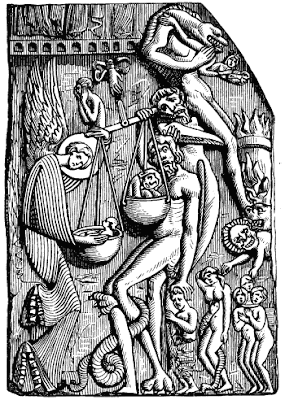
This past Sunday after a worship service which turned on Hungarian-speaking Unitarianism, I caught a little flack for all the god talk. In particular we used several hymns that sang of a God that intervenes in history. One person offered that line which is oft repeated of late but which is perhaps unique to Unitarian Universalist churches, “If we keep hearing all this god-talk in church, I may have stop coming.”
Actually the speaker is someone I deeply admire for many reasons, and I certainly hope was just blowing off a little steam.
First, back to what I believe and what informs all my sermons. I believe in one universe, that expresses itself now as a unity, now as uncounted separate parts in constant flux. This occurs in something akin to what I’ve heard of energy, that if you look at it from one angle you see a wave, and if you look from another angle you see a particle. I wouldn’t be surprised if there are a couple of other angles, as well…
I posit nothing outside of this. And have no compelling reason to challenge that observation at this moment in my life.
Buddhism (together with a handful of other religions of the East) has historically had little concern with a creator divinity. Unitarian Universalism for the balance of the twentieth century has also advocated a non-supernatural universe and a romance with critical inquiry and making the world in which we live the focus of attention.
Today, however, Unitarian Universalism is in flux. It is my anecdotal experience that the majority, the larger majority of those attracted into UU congregations are theist. Now it is real hard to define what they mean when they use the word God. Most, I think, of that most, have some intuition of an essentially loving presence, a benign entity at the heart of things. A few posit the watchmaker’s God. And, some, and as I over the years am increasingly comfortable with as an expression of my experience, find a pantheistic God a reasonable way to describe the way things are.
For me the problem with the bare phenomenal descriptions associated with contemporary humanism and its atheist advocates is a disinclination to the organic and ultimately monistic reality of existence. Now, quickly, I don’t believe the universe is an organism. That’s a metaphor. Rather it is seriously weird. But within that weird there is a unity, which, as I’ve said is now one and is now many. So, I believe organic is good shorthand for this…
The many part is in constant play, what happens in this moment, creates the next. So, if you get down to the size of human beings, from one angle all is written, after all everything is causal and if there were an observer standing at a sufficient distance everything that happens could theoretically be “seen.” And from another angle it is all about freedom, the great mess is sufficiently complicated that the creative functions of an individual consciousness and the subsequent actions can play out like a butterfly’s flapping wing in China “creating” that storm in Boston. There is amazing creativity within this universe in which we live and breathe and have our being.
Okay. That’s what I believe.
And out of that, in practice, in our religious communities I think the words God and soul are very useful. I believe this is true of Unitarian Universalism, and I suggest it can be true for Buddhists in the West on their, our way toward a Western Buddhism.
I disagree with those who think the word God has caused much of the suffering in the world. You bet adherents of various theologies certainly have done a lot of damage. I would add the three great atheist experiments of the twentieth century haven’t proven to be any improvement.
My take away is that God or no God the good or ill of human relations finds another source.
I am deeply interested in that other source.
I agree seeing a God outside the universe is almost certainly a projection of our humanity on the cosmos. But I argue a God that is the universe is the way things are, and as something experiencable within our lived lives is that source.
I would also suggest that in my experience the more dangerous delusion is not that projection of the divine outside the world, but the projection of our individual reality outside our bodies. The soul I have trouble with is the one that rides inside our bodies like a passenger on a bus. That soul is a very dangerous story, leading to a denial of the world and our own existence and the importance of what it is we do…
And yet I find soul a very useful term.
Like knives, theological language have multiple uses. Some very nasty. Some very good.
And I think there is no better place to explore what these uses are and to differentiate them than within our liberal religious congregations.
Two cents at the beginning of a very busy Wednesday…












